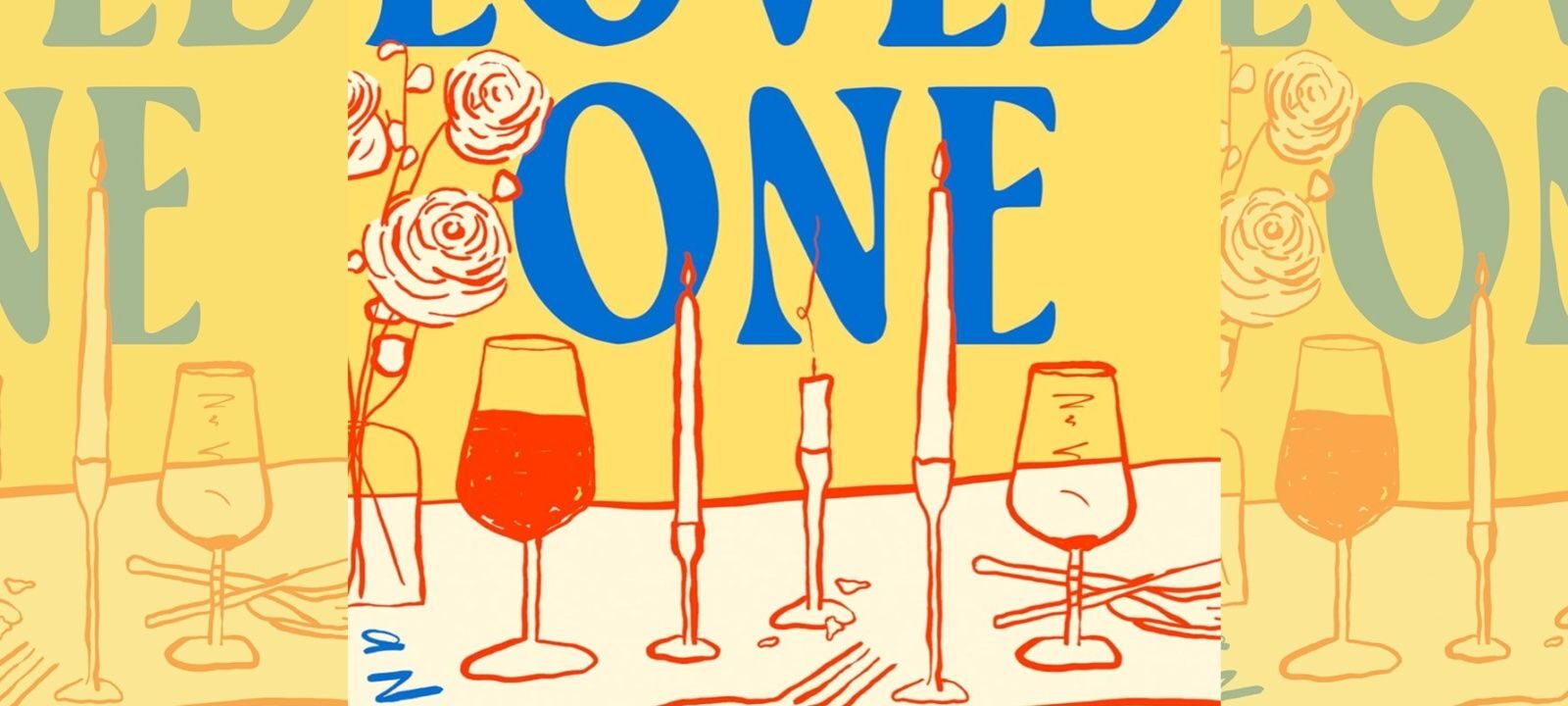There’s no shortage of nonfiction about grief, from Elisabeth Kübler-Ross’s classic On Grief and Grieving to Joan Didion’s The Year of Magical Thinking and Blue Nights. But turning the deeply personal yet universal experience of loss into a novel is no easy task.
That’s exactly what television writer Aisha Muharrar has done with her new book, Loved One. The story follows Julia, an LA jewelry designer struggling with the death of her close friend (and longtime complicated romantic interest) Gabe. In her grief, she forms an unexpected bond with Gabe’s most recent ex, Elizabeth. While the subject matter is painful, Muharrar’s sharp comedic voice—honed on shows like Parks and Recreation, The Good Place, and Hacks—makes it a delight to read.
This week, Vogue spoke with Muharrar about launching Loved One, crafting a postmortem love triangle, diving into jewelry design research, and balancing fiction with screenwriting.
Vogue: How does it feel having Loved One out in the world?
Aisha Muharrar: It’s a mix of emotions. Writing a novel is such a solitary process, so it’s been amazing to see the support from my community. Friends have volunteered to co-host events—one has a bar, and we partnered with a fundraising group called the Freya Project. There’s a wine bar in Kingston, New York, that inspired Elizabeth’s restaurant in the book. I mentioned it to a waitress there, and she told me her husband works at the local bookstore—now we’re doing an event with them.
Honestly, what excites me most is connecting with people. A close friend is driving to Kingston just to hang out. Fans from my Parks and Rec days or the Gilmore Guys podcast are showing up too. I love every part of writing, but the best part is the exchange—putting something out there and hearing how people interpret it. I have great conversation partners, so I’m really looking forward to that.
Vogue: How did Julia, Gabe, and Elizabeth’s story come to you?
Aisha Muharrar: Years ago, I was in a cab with a friend after a party in New York when she told me her friend was dating my ex. He’d been a good boyfriend—we broke up amicably—and she’d recommended him based on my experience. But now, he wasn’t treating her friend well. I joked, I’m not Yelp for boyfriends! But it made me think: That was my experience, but people change. Maybe their dynamic is different. I wondered, If we met, would our perspectives overlap?
That stuck with me. After Parks and Rec ended, I decided to write fiction—something I’d always wanted to do since college. I’d landed this great TV career, but I’d dreamed of writing a novel since I was a kid. (I even wrote a nonfiction book in high school.) With the show wrapped, no kids yet, and newly married, I thought, Why not now? That’s when the cab conversation resurfaced as inspiration.The idea came back to me. I’d already been reflecting on loss due to my own personal experiences, and after talking to a friend who had lost her grandfather—she knew I’d lost several people close to me—she called me the “expert in grief.” It wasn’t the most flattering title, but it made me think there might be something worth exploring. While there are many books about grief now, when I started writing, I didn’t see much about it in literary fiction. There were memoirs, but I wanted to write something that wouldn’t leave grieving readers feeling worse—something that might even offer comfort.
Those two ideas—loss and love—swirled in my head until they took shape as Julia and Gabe. Once Elizabeth entered the picture, the story became more complex, moving beyond a straightforward love story. I wanted to explore a love triangle between two women, something I hadn’t seen much of before, and to add layers to a familiar dynamic.
The jewelry descriptions were so vivid—how did you decide on Julia’s profession?
I did a lot of research, talking to jewelry designers and reading up on the craft. Julia is artistic but not the type to fully commit to art the way Gabe does with music. Her financial background pushes her toward something practical, yet creative. Jewelry design felt right—it’s artistic but also hands-on, even gritty. She welds, she works with metal, she burns herself sometimes. It’s not just glamour; it’s running a small business, chasing invoices, being near the fashion world without fully belonging to it.
How did you balance writing with your TV work?
It was a struggle! While working on The Good Place (Season 1), I’d write from 10 AM to 5 PM, then again from 6 PM to 1 AM. Later, during breaks between shows (The Good Place Seasons 2–3, then Hacks), I’d focus on the book. I’d imagined this romantic writing retreat—a chateau, a colony—but reality was just me, typing late at night. By the time Hacks started, I already had an agent, and we were editing and pitching the book. It wasn’t glamorous, but it got done.The book was essentially finished, though I still spent time revising sentences, handling publishing details, and making edits and additions. I just made it work out of necessity.
This conversation has been edited and condensed.
Loved One
$28
BOOKSHOP
